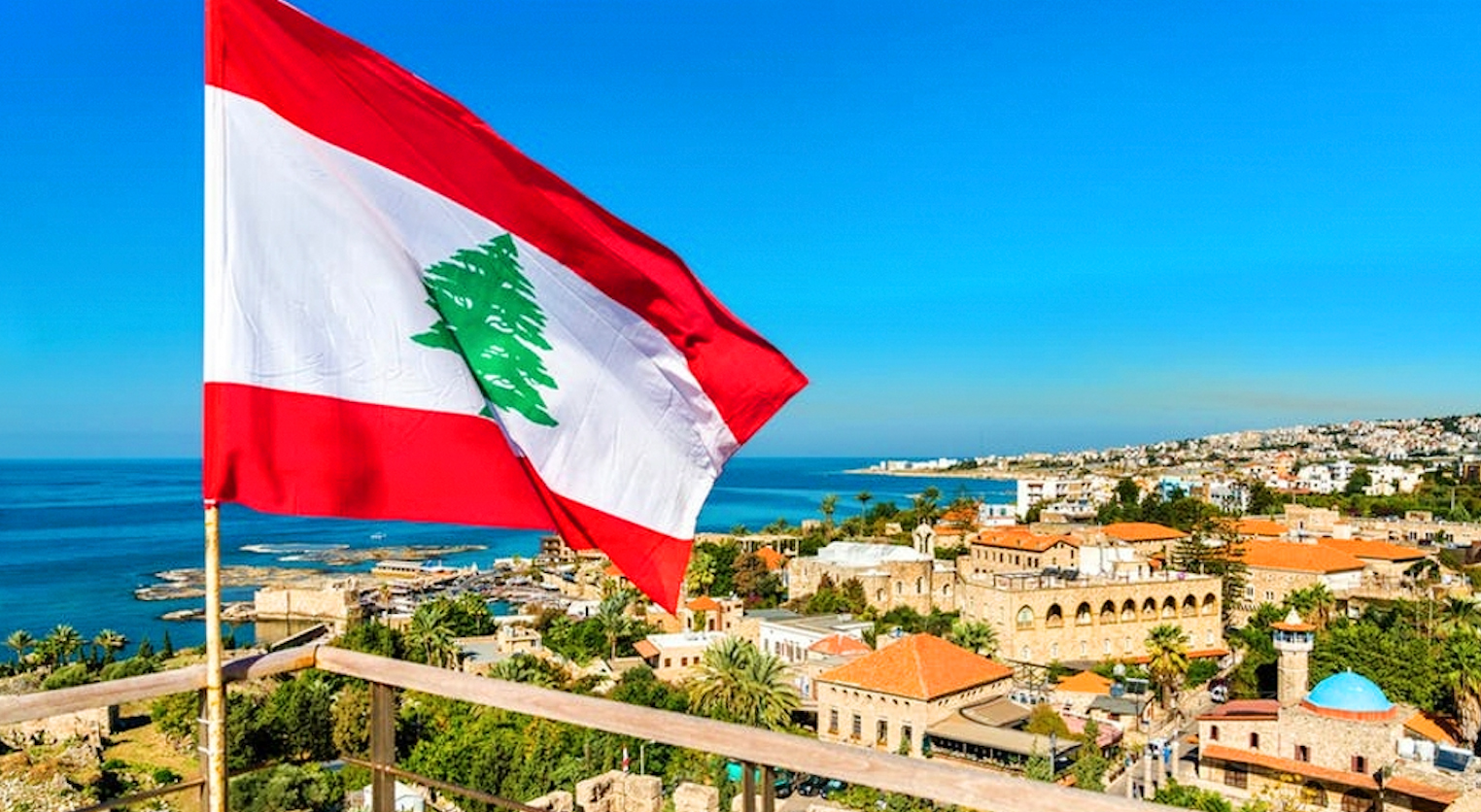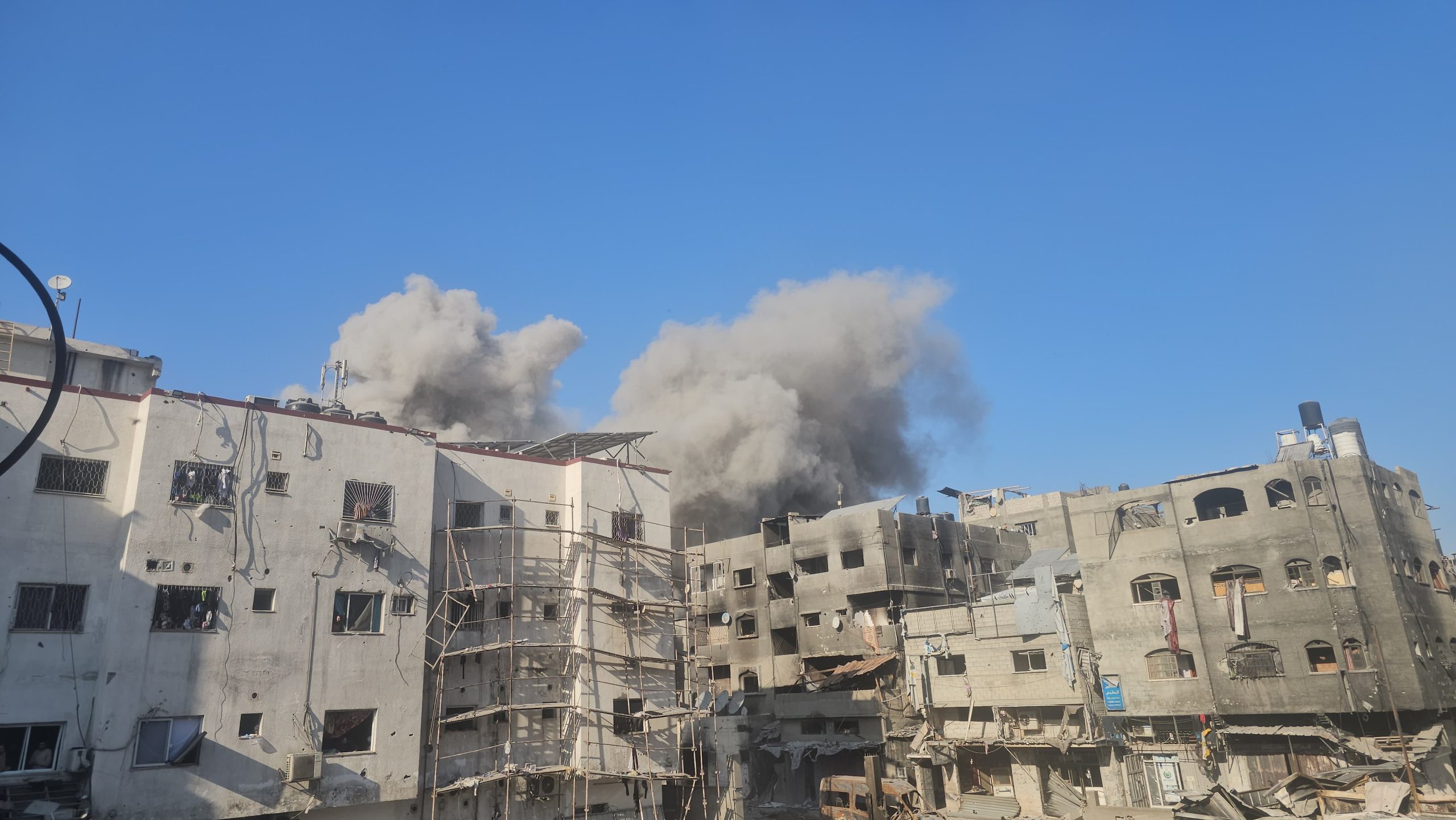The development comes following a Washington mediation in the years-long maritime dispute between Beirut and Tel Aviv.
QatarEnergy joined a tripartite oil and gas exploration consortium on Sunday in two maritime blocks in Lebanon, a move that analysts believe is beneficial for the crisis-hit country.
Under the agreement, the Qatari company will join France’sTotalEnergies and Italy’s Eni following months of talks to explore blocks 4 and 9. QatarEnergy will now acquire a 30% stake, as each of the other two countries hold 35%.
Qatar’s Energy Minister Saad Sherida Al-Kaabi attended the signing along with his Lebanese counterpart Walid Fayad.
“We are present to support a better future for Lebanon and its people, and we look forward to success in working for the benefit of brotherly Lebanon and its people,” Al-Kaabi told the press in Beirut.
The Qatari company is replacing Russia’s Novatek, which owned 20% and pulled out last year, passing on its stakes to the Lebanese government. The Russian withdrawal prompted Beirut to seek another partner in order to commence exploration.
Now, under the deal, exploration can begin from November.
The development comes after a major breakthrough in the maritime borders dispute between Lebanon and Israel following United States mediation. Qatar previously welcomed the US mediation in the dispute, which dates back to 2007.
Under the US-mediated deal, Lebanon and Israel cannot carry out any exploration in Block 9.
The deal is a crucial step for Beirut amid its worst economic downfall in decades, enabling it to begin exploration in the disputed areas.
Speaking to Doha News, analysts said the agreement “might bring some hope” to the country’s situation by potentially generating jobs.
“Qatar’s participation in joining TotalEnergies and ENI would bring benefits to Qatar but is also included in the Qatari approach to support and permanent interest in helping Lebanon at different times,” Dr. Laura Sayah, assistant professor in the Lebanese University, told Doha News.
Dr. Imad Harb, Director of Research and Analysis at the Arab Center Washington DC, said the Qatari involvement is “a welcome development” for Lebanon.
“Qatar has the expertise, experience, and right connections with the world market. It also has been in the forefront of helping Lebanon through its problems, as what happened during the presidential vacuum in 2008,” Dr. Harb said.
Doha has also emerged as a key partner amid the global energy crisis that has been exacerbated by the Russian war on Ukraine.
QatarEnergy has been leading expansions of liquified natural gas (LNG) production under its multi-billion North Field Expansion project, the largest of its kind.
“This participation is another step in Qatar’s expansion of its international natural gas dominance, after the Russian-Ukrainian war, but also an international increasing interest in conducting more exploration in the Mediterranean region to compensate gas disruptions especially in Europe,” Dr. Sayah said.
Strategic partner and mediator
The Gulf state is among the key countries that have continued to discuss rescue plans for Lebanon, with reports claiming that Qatar will attend a meeting in Paris next month over Beirut’s multi-faceted crisis.
The Lebanese currency hit an all-time low after losing more than 90% of its value to the US dollar since 2019.
The situation in Lebanon was exacerbated by the Covid-19 outbreak as well as the deadly Beirut Port blast in 2020. Despite billions of aid sent to the country in response to the tragic Beirut explosion, Lebanon has yet to financially recover.
Commenting on the latest Qatari partnership, Dr. Sayah pointed to Qatar’s role as a strategic partner to the US in addition to its use of economic interventions as a tool of soft power.
“Qatar has also been using economic interventions as a tool of its soft power policy. Furthermore, it shows Qatar’s growing influence, rendering the small emirate as a major player in the political equation of the Middle East,” Dr. Sayah said.
Doha was among the first countries to issue financial support to Beirut in 2019 and in the aftermath of the tragic explosion.
However, Lebanon has yet to recover despite the large sums of aid it received from its international partners as a result of corruption that the Lebanese continue to protest.
A World Bank report released last year exposed how politicians in Lebanon were using the country’s resources to serve their own interests and accused officials of conducting a Ponzi scheme.
“Efficient return to investment might be compromised and put at risk by corruption, institutional, and governance problems. One should add the lack of suitable infrastructure in the country,” Dr. Sayah said.
Maritime dispute
The resolved rift between Lebanon and Israel was triggered in 2007 when Beirut and Nicosia signed an agreement to delimit their maritime border.
Then in 2010, Israel and Cyprus then signed an agreement over the same zones mentioned in the agreement signed by Lebanon and Cyprus.
Unlike Cyprus, Lebanon has no diplomatic ties with Israel and refuses to normalise with the Zionist state, which has previously waged deadly wars on Beirut.
The issue then resurfaced in 2017 when Lebanon inked a gas exploration and production agreement with various companies, including France’s Total.
The French company had refused to begin operations on Block 9—situated in the disputed zone —until the maritime issue was resolved.
In 2011, then-US envoy mediator between Beirut and Tel Aviv Frederic Hof presented a compromise to former Lebanese Prime Minister Najib Mikati to give Lebanon 55% of the area and the remaining 45% to Israel.
During the same year, Lebanon issued Decree 6433 to the UN to claim Line 23, which does not fall on the Karish field. To date, Israel maintains that the field is in its economic zone.
Following studies by the UK Hydrographic Office and Lebanese Army, Lebanon found it can claim an additional 1,430 square km of the area, known as Line 29.
The population has limited electricity access with long lines of cars stretched outside gas stations becoming a norm.







